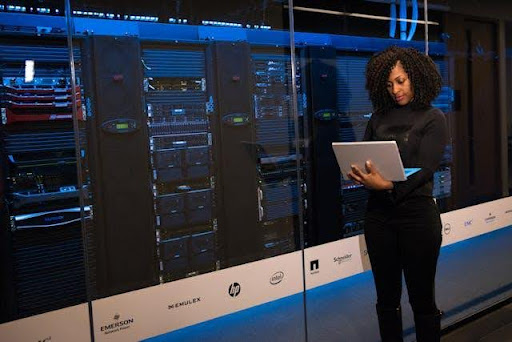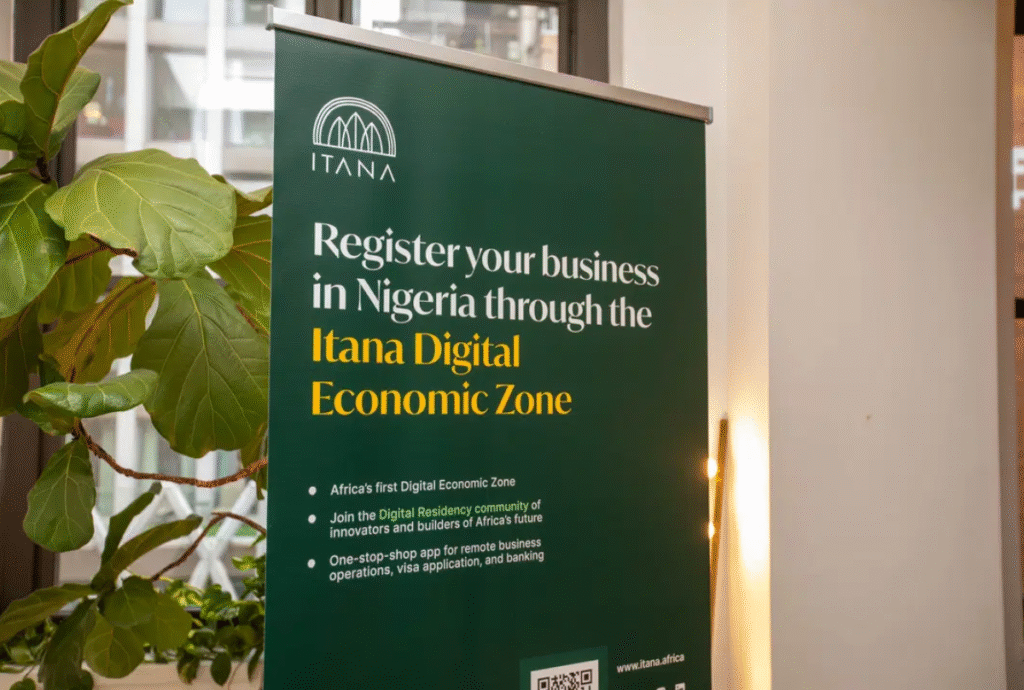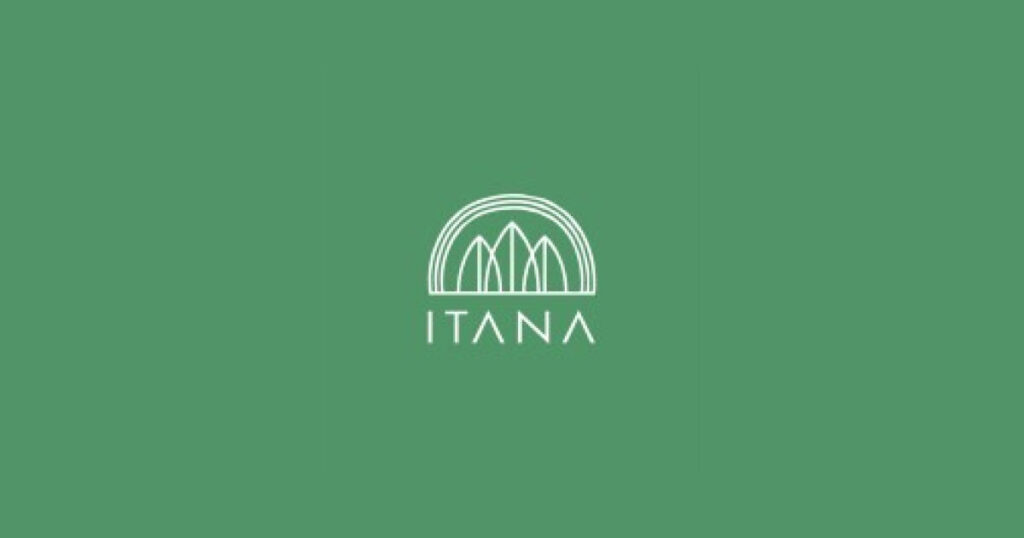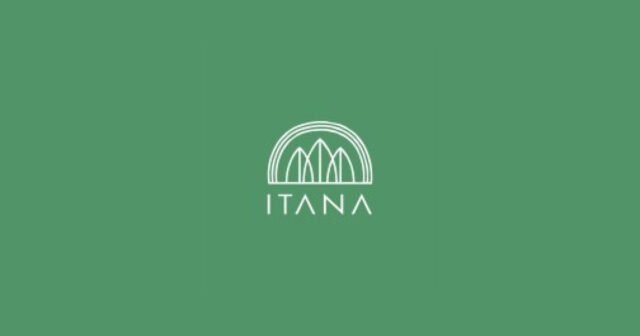In a strategic milestone for Africa’s digital transformation, Itana—the trailblazing Digital Special Economic Zone—has officially launched what is being hailed as the continent’s first full‑stack AI and data growth zone. Announced on July 23, 2025, this initiative marks a paradigmatic shift, offering curated infrastructure designed to empower local founders, engineering teams, and researchers to build AI systems in Africa—from ideation to production—without dependency on foreign platforms
Table of Contents

Bridging Africa’s AI Infrastructure Gap
Despite Africa’s rapidly expanding pool of tech talent and the proliferation of AI startups, the lack of robust local infrastructure has held back meaningful progress. Training a large language model (LLM) in Nigeria typically means relying on costly, foreign-hosted GPUs and juggling data across borders—posing both logistical and regulatory risks.
Itana’s growth zone tackles these challenges head-on, providing:
- Affordable, on‑continent GPU clusters tailored for LLM training, fine-tuning, and deployment.
- Compliant data storage with local, low‑latency access that respects regional governance.
- Access to specialised talent, including MLOps engineers, AI developers, and data scientists.
- Regulatory support and IP governance, helping firms navigate data law and licensing complexities.
- Startup-friendly capital, in the form of grants, credits, and introductions to aligned investors.
By fusing these elements, Itana eliminates the patchwork approach of piecing together platforms, data centres, talent, and capital—a critical missing link in Africa’s AI readiness.
The Power of Local Compute & Sovereign Data
1. GPU Infrastructure: Africa’s Compute Revolution
Itana has invested in scalable GPU clusters for AI model training. Traditionally, African developers have been captive to services like Google Colab—where costs escalate rapidly during prolonged usage, and compute times stretch into days. By harnessing local GPU power, Itana drastically improves iteration speeds and reduces latency as training cycles shrink from days to hours
General Partner at Future Africa, Iyinoluwa Aboyeji, emphasised:
“Africa will not win in the AI age by consuming what the rest of the world builds. We’ll win by creating the infrastructure that allows our people to build for themselves.”
This hardware-centric approach underscores how AI-driven progress depends heavily on the availability of computing resources.
2. Sovereign Data Storage: A Regulatory Imperative
As data laws evolve, cross-border storage becomes a legal and performance liability. Itana’s data growth zone offers compliant, low-latency storage—enabling sensitive datasets and ML training material to reside within national borders, under local governance. This not only minimises latency but also reinforces data sovereignty—essential for sectors like healthcare, fintech, and government tech applications.

Nurturing Africa’s Emerging AI Talent Ecosystem
Building robust AI systems entails more than compute and storage—it requires people. Itana has responded by assembling curated pipelines of AI talent:
- Vetted MLOps engineers, skilled in managing model lifecycles and deployment.
- Experienced AI developers with capabilities in model building and fine-tuning.
- Qualified data scientists, capable of crafting reliable structures and datasets for machine learning
Itana further enhances access through regulatory advisory, guiding innovators on IP, licensing, and compliance—an often overlooked yet critical component of a sustainable tech ecosystem.
A Holistic, Full-Stack Innovation Hub
TechCabal paints a vivid picture of Itana’s enclave—co-locating AI startups, compute infrastructure, and data frameworks in a highly resource‑dense environment. This full-stack model mirrors global hubs like Hub71 or NEOM, but is tailored for Africa, addressing local regulatory, infrastructural, and talent realities.
Victor Famubode of Itana emphasised:
“Globally, there’s a fight for certain resources—starting from infrastructure, down to talent and capital… If Africa is going to play competitively in the AI space, then we must aggregate these resources locally.”
By combining GPU compute, data storage, human capital, and governance, Itana paves the way for an African AI ecosystem capable of producing global applications rooted in local context.
Fertile Ground for Local and Diaspora Innovators
Itana’s zone has been a magnet for global AI entrepreneurs—particularly those in the diaspora. Over 70% of participating companies are foreign- or diaspora-owned, with around 30 AI-focused firms in its ecosystem. Of these, ~20% are based in Africa and a mere ~5% are in Nigeria—highlighting both global interest and a significant opportunity to grow local representation.
Business registration costs are deliberately low:
- $2,000 for a one-year license
- $1,150 for annual renewals
Notably, companies aren’t required to relocate — it’s a remote-first model that supports distributed teams.
This flexibility, along with access to compute, talent, and funding, positions Itana as a compelling base for tech-first businesses catering to African needs.
Catering to a Broad AI Ecosystem: Upstream to Downstream
Itana’s scope spans the entire AI value chain:
- Upstream model developers building LLMs and foundational models.
- Downstream AI application teams, creating chatbots, diagnostics tools, recommendation engines, and more.
There’s also a strategic focus on localising smaller language models—compact, efficient, and tailored to African languages. Famubode observes:
“Smaller models are cheaper to run, require less infrastructure, and are more easily tailored to African languages and contexts.”
Despite this local emphasis, the hub is equally open to larger-scale LLM projects—offering hardware and expertise for both small and large models.
Real‑World Launch, Not Just Concept
Itana is far beyond pilot phase. With operations actively underway in Lagos’s Alaro City—a smart city development with reliable energy, cooling, and broadband—services are live today, not years in the future.
Famubode reinforces that this is a long game:
“This is not a soft‑launch experiment. We’ve already begun operations… The AI growth zone is a continuum; we’re iterating with real demand and real companies.”
Alaro’s robust infrastructure forms the perfect host, with scalable utilities that will support future data centre expansion.
Why Africa Must Own Its AI Story
FAster global adoption of AI presents an existential pivot point for data sovereignty. Africa risks relegation to a “passive consumer” unless it builds infrastructure to independently define, train, and control AI systems.
Itana’s AI & data growth zone is more than a cluster of servers—it’s a launchpad for sovereignty:
- Job creation for data engineers, MLOps professionals, and more.
- FDI attraction, as global firms seek African computer access.
- Exportable innovation, based on contextually relevant AI.
- Policy leverage, through home-grown infrastructure and tech governance frameworks.
Itana CEO Mayowa Olugbile underscores the urgency:
“Africa is at a critical juncture… Itana’s vision is to fix that gap and provide a home for the builders of Africa’s AI future. Our mission is crucial – Africa must act now… or risk being permanently dependent on foreign platforms.”
A Model for AI Independence & Continental Impact
Itana’s full-stack AI & data growth zone demonstrates how continent-specific infrastructure can reshape Africa’s technological destiny. By:
- Assembling essential elements—compute, data storage, talent, regulatory pathway, and capital;
- Supporting distributed businesses through accessible licensing and remote options;
- Providing scalable infrastructure for future expansion;
- Catering to both tech giants and small innovators;
—Itana is laying the groundwork for a regionally rooted AI economy.
Looking Ahead: What Comes Next
Several key milestones will shape the trajectory:
- Infrastructure expansion: Adding more GPU clusters and maturing to Tier 4 data centres.
- Talent growth: Scaling AI education pipelines and fostering local communities.
- Ecosystem activation: Encouraging local founders to join the zone and build originator models.
- Outcome measurement: Tracking model creation, startups launched, and data-handling benchmarks.
Itana’s work may serve as a beacon for similar initiatives across Africa—mirroring digital economies of Kenya, South Africa, and Egypt—with “AI-ready” districts that drive real economic impact.

The Bigger Picture: A Sovereign AI Blueprint
Itana’s approach aligns with a transformative vision:
Africa doesn’t need to wait for AI tools to cross borders—it can build its own. And not just for local consumption, but for global audiences. AI models trained on African languages and conditions can lead in sectors like fintech, agritech, climate forecasting, and education.
By harnessing compute, data, talent, and governance locally, Itana offers a blueprint for AI sovereignty. It stands as a reminder: AI ecosystems aren’t just about technology—they’re about control, context, and creative agency.
Conclusion
For African AI to flourish, fragmented resources must converge. Itana’s first-ever full-stack AI and data growth zone is a landmark step in that journey. As infrastructure scales, more founders enrol, and policymakers clarify frameworks, Africa will not just join—but lead—the global AI revolution.
This is more than infrastructure. It’s a continent-wide commitment to self-determined innovation, aiming to reshape jobs, economies, and technological dependencies. Itana’s model could well define the future of African AI.
Join Our Social Media Channels:
WhatsApp: NaijaEyes
Facebook: NaijaEyes
Twitter: NaijaEyes
Instagram: NaijaEyes
TikTok: NaijaEyes








































